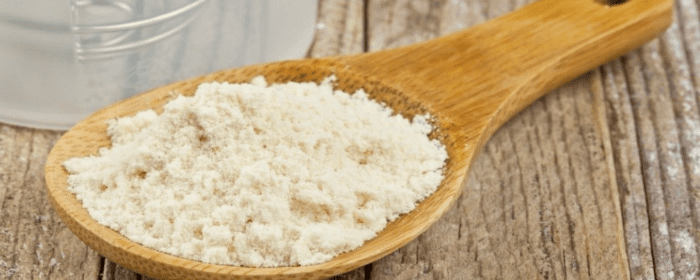
by admin | May 22, 2019 | Bone Marrow, Mesenchymal Stem Cells, Stem Cell Research, Stem Cell Therapy, Umbilical Stem Cell
Mesenchymal stem cells have two unique and powerful properties that make them the focus of intense scientific research. First, mesenchymal stem cells can escape recognition by the immune system. In other words, when mesenchymal stem cells are infused into the body, the immune system does not recognize them as foreign and does not react to them. If the immune system did respond to the stem cells, it would cause an aggressive and potentially deadly allergic or immunologic response. Second, mesenchymal stem cells have the power to inhibit the immune system. This means mesenchymal stem cells could be used to treat immunological and autoimmune diseases such as Rheumatoid Arthritis, Systemic Lupus Erythematosus, Multiple Sclerosis, and Crohn’s Disease, among others. In essence, mesenchymal stem cells can affect the immune system without triggering an inflammatory response making them an ideal treatment for these diseases.
For some time, mesenchymal stem cells extracted from bone marrow were thought to be the only type of mesenchymal stem cells capable of beneficially affecting the immune system. This fact is not necessarily bad, but it does mean that mesenchymal stem cell donors must undergo a bone marrow procedure, which can be painful and expensive. It would be far better if doctors could use mesenchymal stem cells taken from easier-to-get tissues such as fat (adipose), umbilical cord blood, or Wharton’s jelly (umbilical cord tissue). Most people have adequate amounts of fat just under the skin, and umbilical cord blood and tissue are thrown away as medical waste every day.
Fortunately for patients, Dr. Yoo and colleagues showed that mesenchymal stem cells taken from fat tissue, umbilical cord blood, and Wharton’s jelly exhibit the same immunomodulatory properties as mesenchymal stem cells taken from bone marrow. The researchers showed that these types of mesenchymal stem cells were able to suppress T-cell proliferation as effectively as those cells taken from bone marrow. T-cell proliferation, it should be pointed out, is a key step in autoimmune inflammation that occurs in diseases such as rheumatoid arthritis and others.
In short, mesenchymal stem cells taken from easier-to-get tissues were just as effective at suppressing inflammation (in vitro) as those taken from bone marrow. These results will need to be confirmed in clinical studies; however, this approach will be much more convenient and less expensive for patients and donors if they can use mesenchymal stem cells taken from fat or umbilical cord rather than bone marrow and yet reap the same benefits.
Reference: Yoo KH et al. (2009). Comparison of immunomodulatory properties of mesenchymal stem cells derived from adult human tissues. Cell Immunology. 2009;259(2):150-6.

by admin | Jul 27, 2018 | Health Awareness, Lupus, Multiple Sclerosis, Parkinson's Disease, Studies
Colostrum is the milk produced by the mammary glands during pregnancy prior to giving birth. It is rich in antibodies that help prevent the newborn from various conditions. Colostrum as compared to normal milk contains a high amount of nutrients and fat, making it highly beneficial.
The most important thing to know about colostrum is that it is not a medication. It is a naturally designed food that maintains the health and prevents conditions. Colostrum is effective for shutting down the onset of conditions and infections, which helps the body to repair itself and allows the individual to enjoy a healthy and radiant life.
Colostrum is the Key to Gut Health
Colostrum is the source of everything that is required to maintain a healthy gastrointestinal tract. It is known that most of our conditions take birth in the gut and proper absorption of nutrients is the key to great health. It is one of the primary function of colostrum to maintain a healthy gut, which is the basis of the overall healthy body.
When the beneficial bacteria present in our intestine is outnumbered by the harmful bacteria then our gut is said to be out of balance. This imbalance has many consequences, one of which is the leaky gut syndrome.
Leaky gut syndrome is a condition due to which various pathogens and toxins pass through the lining of the gut and move freely in the body, this leads to various conditions. Leaky gut syndrome, if not treated can be a life-threatening condition.
Colostrum is an optimal treatment for treating leaky gut syndrome because it has growth factors that help repair the damage of the intestine to normal. It is also rich in immunoglobulins that control the pestering of fungi and bacteria in the body. In various conducted studies colostrum has successfully increased the surface area of the lining of the intestine, thereby improving the absorption of nutrients.
Colostrum: The Perfect & Functional Food
Looking at all the immune and growth factors that are present in colostrum, it is called the best alternative to pharmaceutical drugs, from steroids and antibiotics. Colostrum is also safe for people suffering from lactose intolerance and has no allergic reactions or side effects.
A functional food is one that has potential health benefits compared to normal food and is high in nutrients. Colostrum is high in nutrients and can be combined with other food products. It is most effective when taken on an empty stomach. Available in the form of capsules, colostrum is more effective and bioavailable.
Colostrum for Autoimmune Conditions:
Autoimmune conditions are those in which the body starts producing antibodies against itself. Colostrum has shown to be highly effective to treat autoimmune conditions like Lupus, Parkinson’s disease, and Multiple Sclerosis. Chemokine receptors have been observed to be the cause of the development of all these conditions. Colostrum produces antagonists of these receptors and has been shown to decrease the symptoms of many common autoimmune conditions.
Colostrum Used as a Topical Application:
Colostrum, if applied externally can help heal the burns, acne, cuts and various abrasions and even surgical cuts. If applied orally, it can help deal with sensitive teeth relieve canker sores and gingivitis.
Some Overall Benefits of Colostrum are:
Anti-inflammatory
Anti-aging
Anti-fungal
Anti-bacterial
Cancer
AuAutoimmuneondition
Blood pressure
Cholesterol
Sugar levels
Diabetes
Digestion
Flu prevention
Fat reduction
Heart health
Gut health
Immunity
Joint repair
Immunity
Mobility
Muscle repair
Pain
Stamina
Tissue repair
Wound healing
Weight loss
Inflammation
Below is a list of some common conditions for which colostrum can be effective:
Allergies
Anemia
Arthritis
Autoimmune conditions
Asthma
Bacterial infection
Bone marrow transplant
Cancer
Alcoholism
Allergies
Anemia
Arthritis
Crohn’s disease
Chronic fatigue
Diarrhea
Fibromyalgia
Food poisoning
Heart disease
Hepatitis
Influenza
Intestinal bowel syndrome
Joint repair
Leaky gut
Lupus
Multiple sclerosis
Osteoporosis
Obesity
Premature birth
Osteoporosis
Ulcer
Yeast infection
Viral infection
Where Can I Find Colostrum?
If you have any symptoms suggestive of gastro-intestinal dysbiosis (diarrhea, constipation, bloating, reflux, stomach discomfort or pain) then you should seek further work-up by your physician or a Functional Medicine Doctor.
In the meantime, it is recommended to start using Bovine Colostrum which can be found at Sovereign Laboratories at www.mysovlabs.com. Simply mix 2 tablespoons in 6oz of water and consume twice per day on an empty stomach. This product is full of gut healing immunoglobulins. Use for 2-3 months should result in significant improvement.
In addition, it is also recommended to take a good probiotic while using your bovine colostrum. Vitamin D levels should be optimized to levels between 80-100.

by admin | Apr 27, 2017 | Stem Cell Research
Stem cells have shown promise for treating a number of autoimmune diseases, where the immune system attacks the body. Lupus causes chronic inflammation as a result of immune system attack of the body’s tissues and organs and so is a reasonable candidate for stem cell therapy.
The cells of the immune system that tend to be attacked in lupus are bone marrow cells, so replacing these cells with stem cells could improve the inflammation that occurs in the disease. Recent research has shown that stem cells do in fact demonstrate an ability to help with lupus-like diseases. A recent paper published in Experimental Nephrology described the development of this research and some of the results.
The scientists who authored this recent paper had previously shown that bone marrow transplantation could be used to reconstruct the immune system in a way that could cure severe immunodeficiency, as well as other fatal diseases including forms of cancer and congenital abnormalities due to genetic disorders or problems with metabolism.
More recently, they have begun conducting stem cells transplants with a specific stem cell type called hematopoietic stem cells. These cells have been successfully used in oncology to treat cancers, and it was hypothesized that they could also be useful in autoimmune diseases like lupus.
An advantage to using these cells is that much of the work had already been done to determine how to best isolate the stem cells and how to perform transplantations with them. It is therefore not surprising that researchers successfully transplanted these cells during their research into the application of these cells in lupus-like diseases. Their results showed that hematopoietic stem cells could both prevent and cure a host of autoimmune problems that are related to lupus.
Though hematopoietic stem cell transplantation has been performed on patients since 1997 and is conducted in parts of Europe, as well as in China and Brazil, clinical trials in the United States are still underway. Further research will help to define the specific role of hematopoietic stem cells in potential treatment options for lupus and related diseases and to determine how to safely deploy these strategies.
Stem cell treatment for lupus is a new alternative therapy to help manage the symptoms of this disease. Learn more about it here.
Reference
Good, RA et al. (2002). Mixed bone marrow or mixed stem cell transplantation for prevention or treatment of lupus-like diseases in mice. Experimental Nephrology, 10(5-6), 408-420.




 St. Petersburg, Florida
St. Petersburg, Florida
